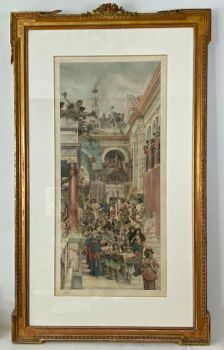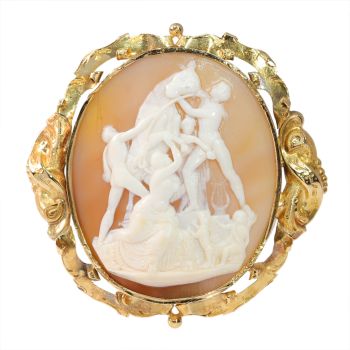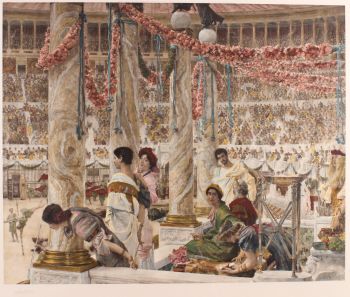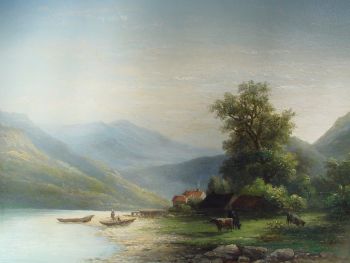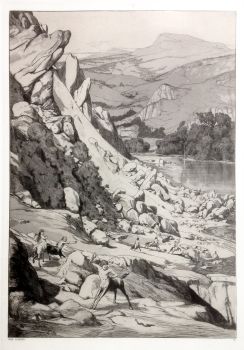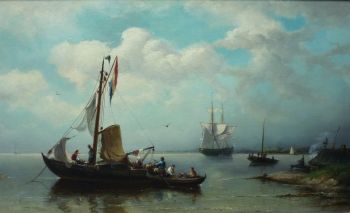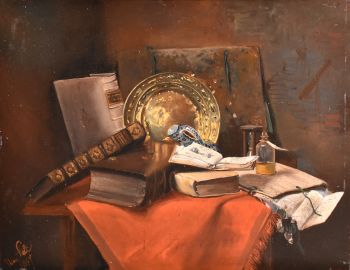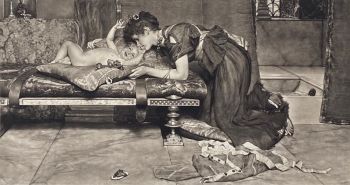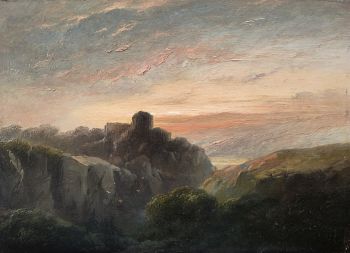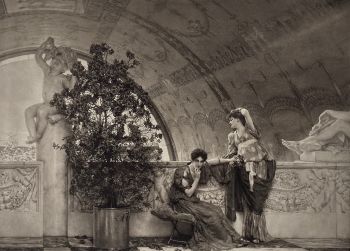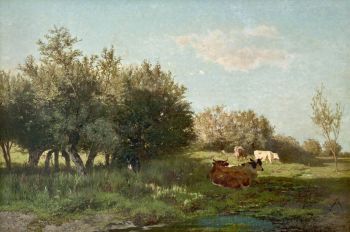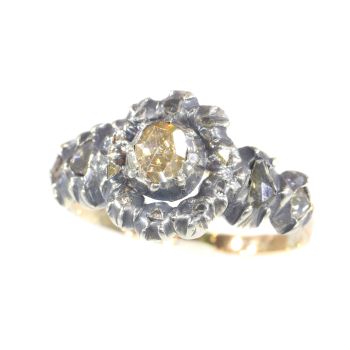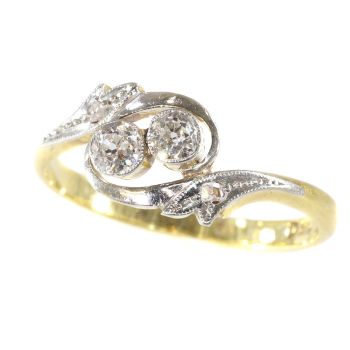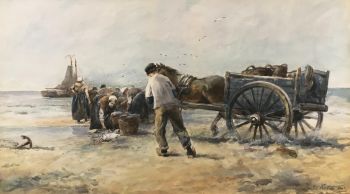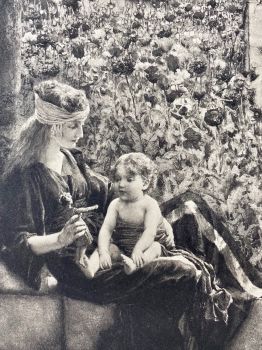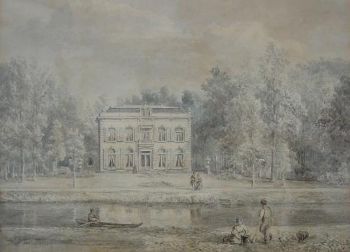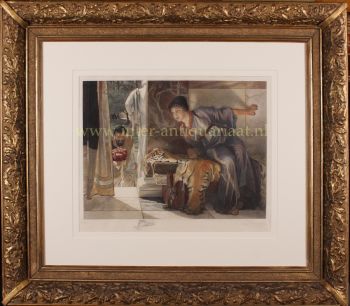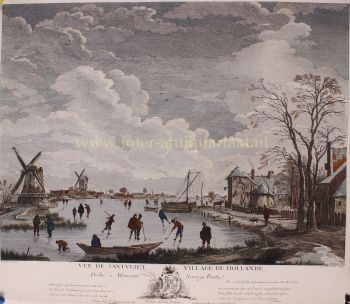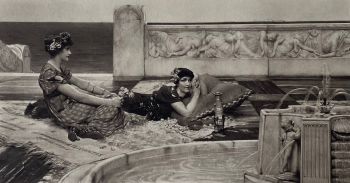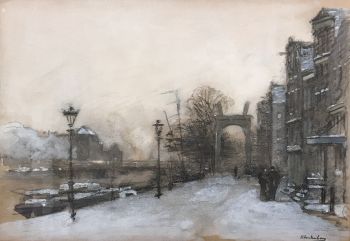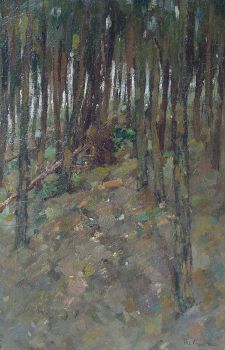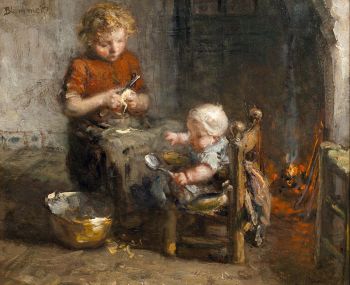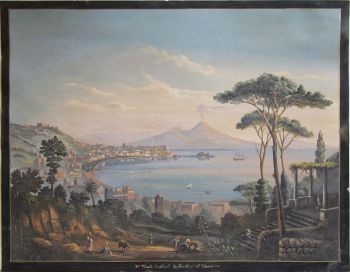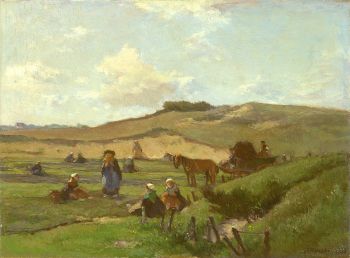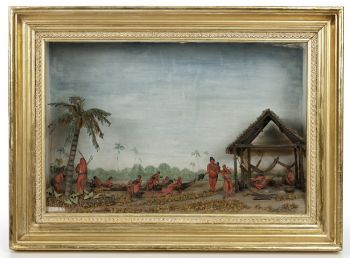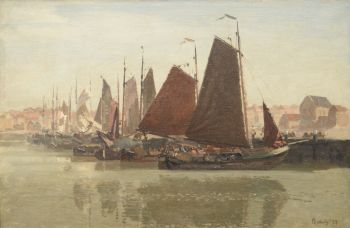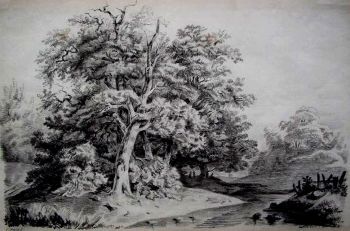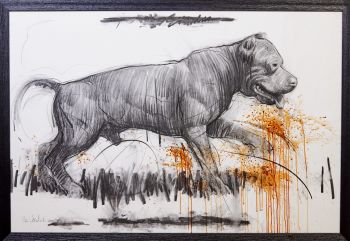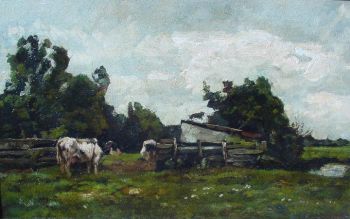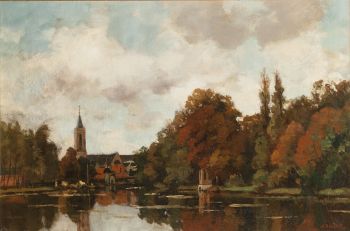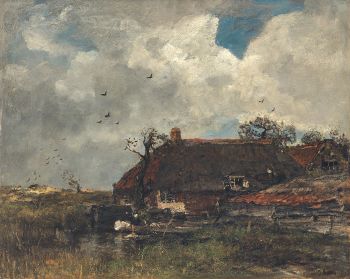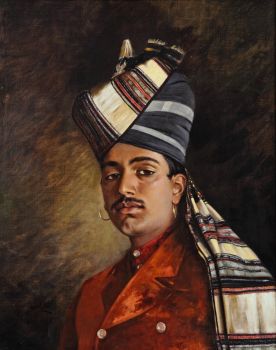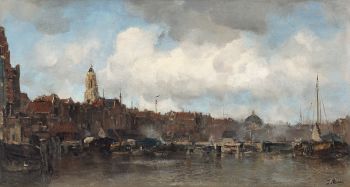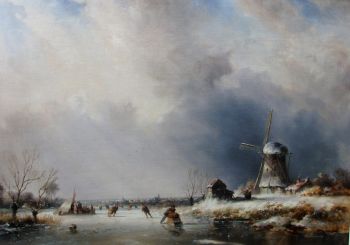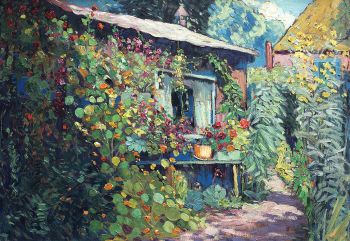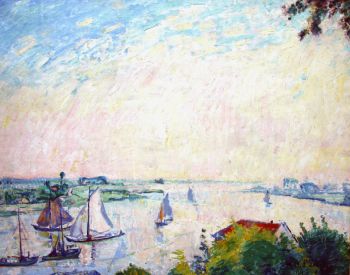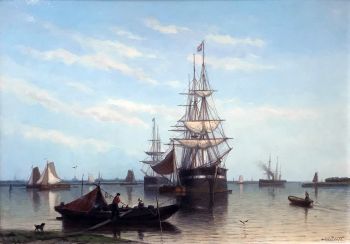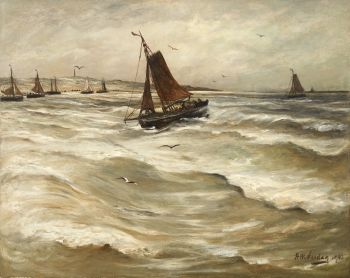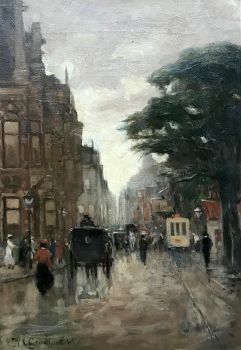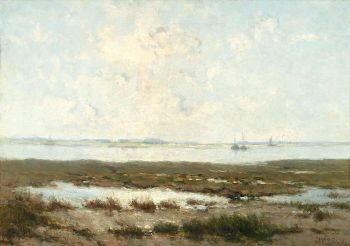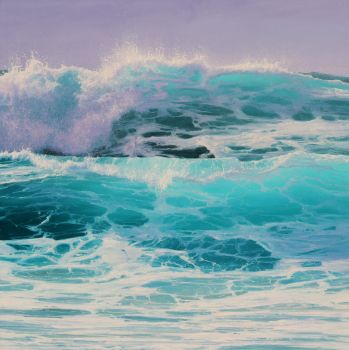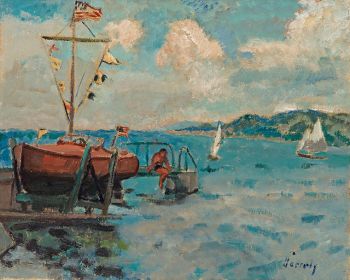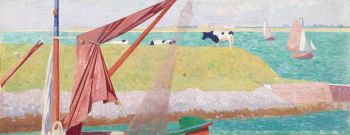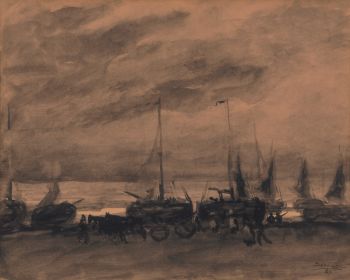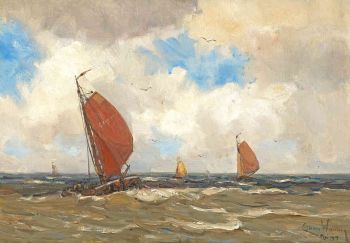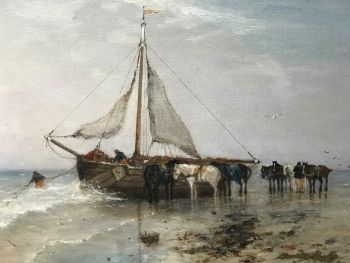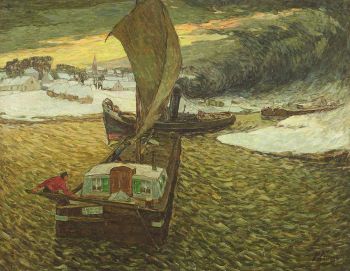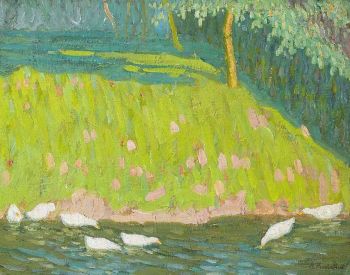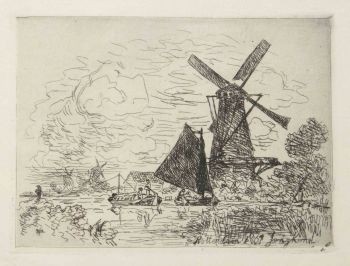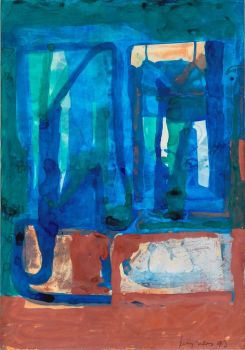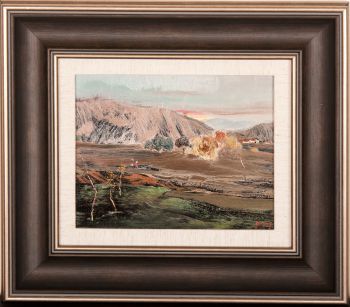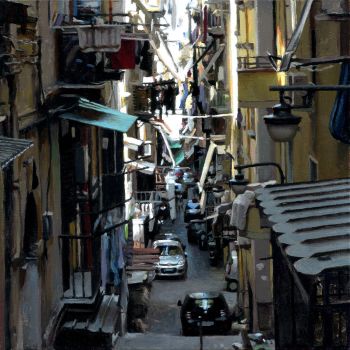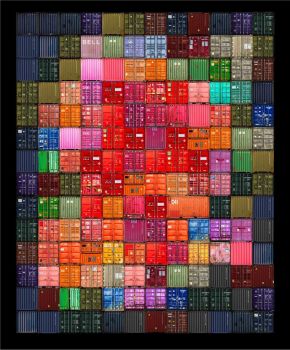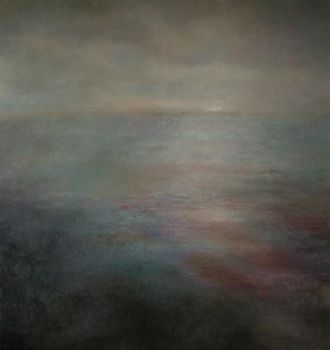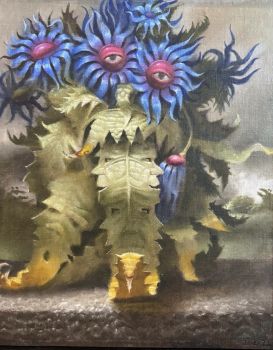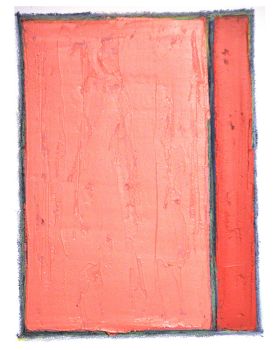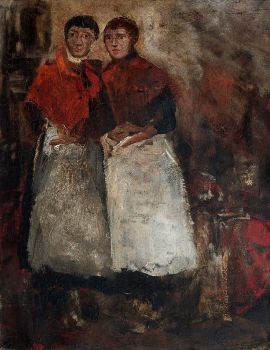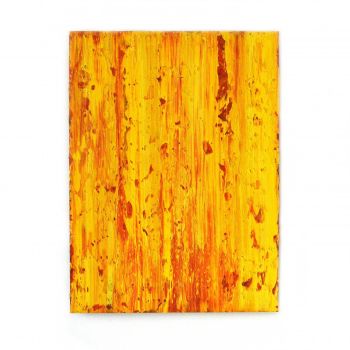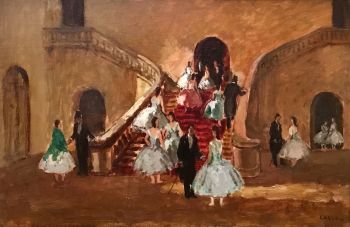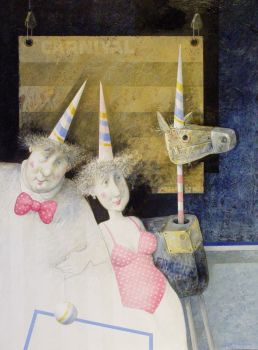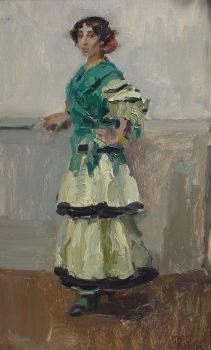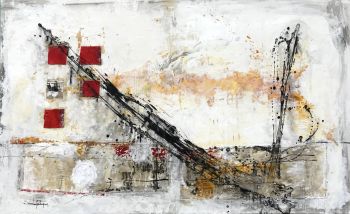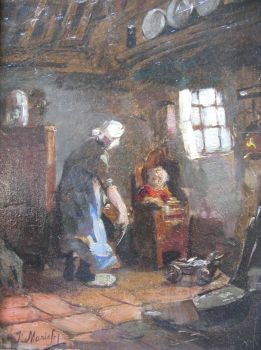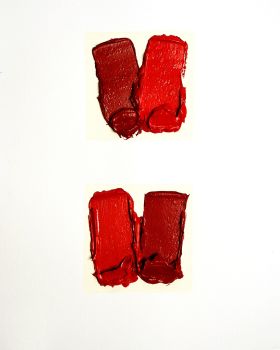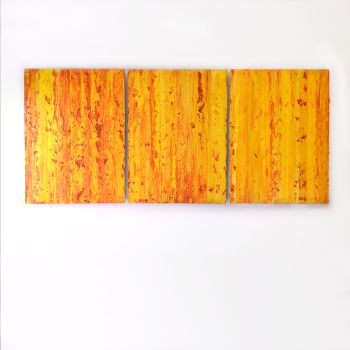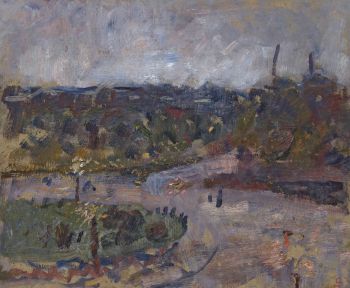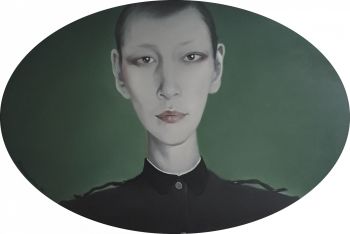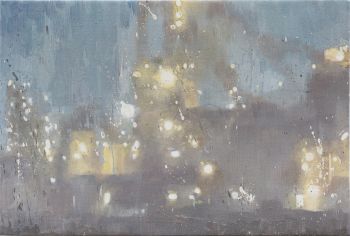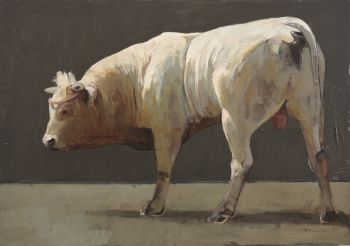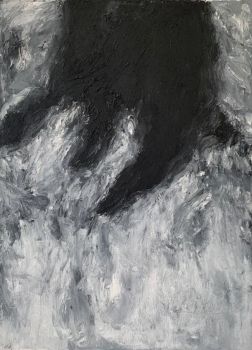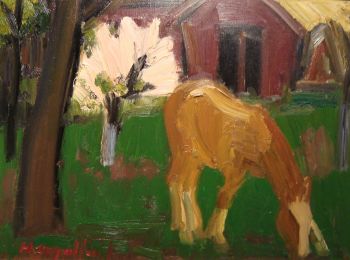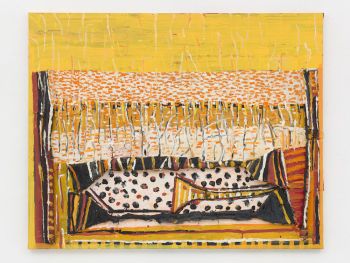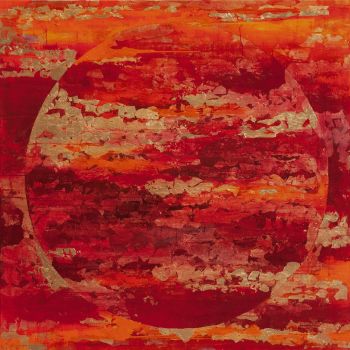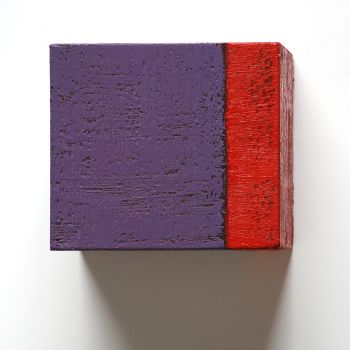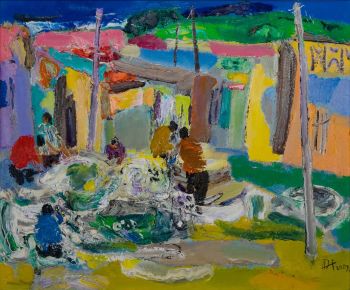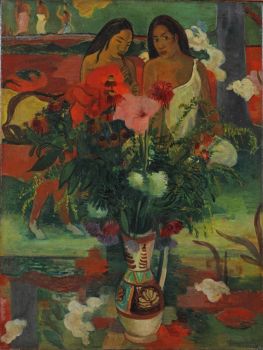Hermanus Koekkoek Dutch sea view 1836 - 1909
Hermanus Koekkoek
ÖlfarbePlatteFarbe
18 ⨯ 22 cm
ConditionVery good
€ 3.995
Olischlager Antiquairs
- Über KunstwerkHermanus Koekkoek is considered one of the most important marine painters of the 19th century. This applies not only nationally, but also internationally. His knowledge of ships and rigging is immense. In addition, his work reveals excellent pictorial qualities, resulting in beautiful atmospheric skies and waves with an exceptional representation of textures. Masts and ropes, as well as the curves of the ships and sails, are painted with an incredibly sure hand by Hermanus, who was left-handed. Even in the depiction of the figures on board and around the ships, he shows himself to be one of the best of his time. Hermanus Koekkoek was certainly not disadvantaged by his origins, being a member of the greatest Dutch painter dynasty of all time.
Hermanus is the youngest of the four sons of Johannes Hermanus Koekkoek, a famous marine painter and patriarch of the famous Koekkoek family. Like his father and his older brother Johannes, who died prematurely, Hermanus specialized in maritime subjects, while his two older brothers, Barend Cornelis and Marinus Adrianus, were known as renowned landscape painters. Hermanus Koekkoek learned the art of painting from his father, but surpassed him in level. Not only did he create dynamic maritime views, but also subtle and serene river landscapes. The Dutch coast, and in particular the Zuiderzee, was usually the subject of his paintings. In addition to his hometown of Middelburg, he also lived and worked in Durgerdam (today part of Amsterdam-Noord), Nieuwer-Amstel (today Amstelveen), Amsterdam, and briefly in Haarlem.
From 1832, when Hermanus was only seventeen, he exhibited regularly at exhibitions in Amsterdam, Rotterdam and The Hague. In 1840 he became a member of the Royal Academy in Amsterdam and in 1841 of the Genootschap in Rotterdam. At an exhibition in 1875 at the famous artists' society Arti et Amicitiae in Amsterdam he won a gold medal. The following year he exhibited a painting with great success at the famous Royal Academy in London. Incidentally, in the 19th century his fame in England exceeded that of the Netherlands. He also sold many paintings there, largely thanks to his eldest son Hermanus Jr., who moved to London in 1869 and opened an art gallery there.
Correspondence with the painter David Bles reveals that at that time Hermanus Koekkoek charged around ƒ 3,000,- for a painting, a very respectable amount at the time. Hermanus Koekkoek's contribution to the continuity of the Koekkoek dynasty in painting was immense. First of all by his four sons, Hermanus Junior, Willem, Johannes Hermanus Barend and Barend Hendrik, who were all trained by their father. In addition, four of his grandsons also worked as painters. The fact that Hermanus Koekkoek was recognized not only in the Netherlands, but also far beyond, is demonstrated by the list of national and international museums that house his works. - Über KünstlerHermanus Koekkoek wurde am 13. März 1815 in der niederländischen Stadt Middelburg in der Provinz Zeeland geboren. Er war der jüngere Bruder des bekannten Landschaftsmalers B.C. Koekkoek. Sein Vater Johannes Hermanus Koekkoek machte ihn mit den Künsten bekannt und gab ihm seinen ersten Malunterricht. Bis 1831 lebte und arbeitete Hermanus in Durgerdam, danach zog er nach Amsterdam. Hier blieb er bis 1882, als er nach Haarlem zog. Er starb im selben Jahr in dieser Stadt. Hermanus Koekkoek ist als Marinemaler bekannt. Er malte oft Meer- und Flussblicke in einem typisch niederländischen romantischen Stil, und viele Einflüsse der niederländischen Marinepainters aus dem Goldenen Zeitalter sind in seiner Arbeit zu finden. Neben seinen Wasseransichten hat er uns ein paar Landschaften an der Hand gelassen. Hermanus Koekkoek unterrichtete den Seekapisten Willem Gruyter Jr. sowie seine eigenen Söhne nach der Malertradition von Koekkoek. 1840 wurde Hermanus Mitglied der Royal Academy in Amsterdam und 1841 wurde er Mitglied der 'Rotterdams Genootschap'. Zu seinen Lebzeiten erhielt er viel Anerkennung für seine Arbeit. 1875 gewann er eine Goldmedaille bei einer Ausstellung in Arti et Amicitia, einer renommierten Künstlervereinigung in Amsterdam.
Sind Sie daran interessiert, dieses Kunstwerk zu kaufen?
Artwork details
Kategorie
Thema
Stil
Material & Technik
Related artworks
Lawrence Alma-Tadema
"Caracalla and Geta: Bear Fight in The Coliseum, AD 203" 1907
Preis auf AnfrageGallerease Selected
 Kuratiert von
Kuratiert vonDanny Bree
Corstiaan Hendrikus de Swart
Mountain landscape with Lake1838 - 1900
Preis auf AnfrageKunsthandel Pygmalion
Gerard Bilders
The 'Uiterwaarden' at Oosterbeek (flood plains)1861
Preis auf AnfrageStudio 2000 Art Gallery
Johannes Christiaan Karel Klinkenberg
Cityscape Amsterdam1875 - 1925
Preis auf AnfrageGalerie Gabriëls
1 - 4 / 24Johannes Evert Akkeringa
'Nettenboetsters' in the Dunes1861 - 1942
Preis auf AnfrageStudio 2000 Art Gallery
Corstiaan Hendrikus de Swart
Mountain landscape with Lake1838 - 1900
Preis auf AnfrageKunsthandel Pygmalion
Gerard Bilders
The 'Uiterwaarden' at Oosterbeek (flood plains)1861
Preis auf AnfrageStudio 2000 Art Gallery
Gijsbertus Jan Sijthoff
Interior scene with a woman doing needlework1890 - 1920
Preis auf AnfrageVan der Aalst Fine Art
1 - 4 / 24Hendrik Willem Mesdag
SCHEVENINGEN, VISSERSSCHEPEN VOOR DE KUST 1903
Preis auf AnfrageGalerie Het Noorderlicht
Anthonie Pieter Schotel
BOTTERS OP DE ZUIDERZEE MET DOOR HET WATER WEERKAATST ZONLICHT1920 - 1950
Preis auf AnfrageGalerie Het Noorderlicht
1 - 4 / 24Paulus Franciscus Kromjong
Blumen vor Arearea Aka (Freude) von Gauguin '20th century
Preis auf AnfrageZebregs & Röell - Fine Art - Antiques
1 - 4 / 24- 1 - 4 / 5







